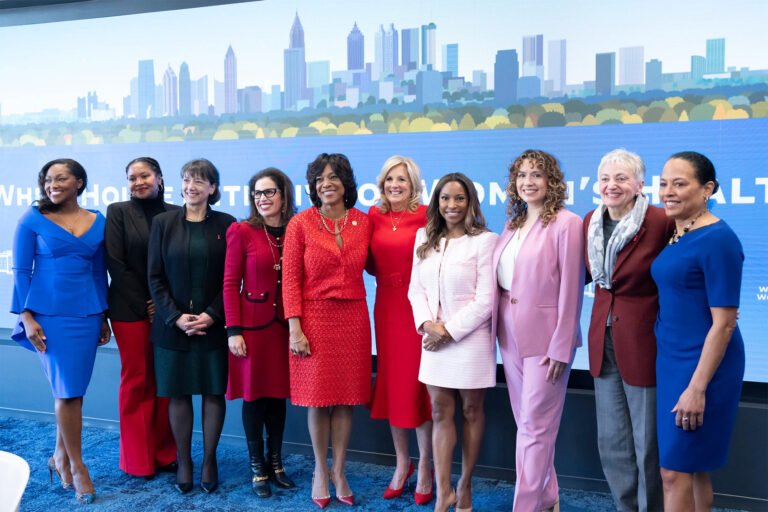We also stand out from President Joe Biden’s State of the Union address last week, where he specifically named impact statements and invested in policy actions and promises with significant implications for women’s health in the United States. At the Black Women’s Health Imperative, we call on all of our communities to hold our President and politicians accountable to these commitments as we prepare for the urgency of the upcoming November election.
In his speech, President Biden unequivocally stated his intention to “reinstate Roe v. Wade as the law of the land again” if voters elect a Congress that supports reproductive freedom. By reframing this issue through the lens of “reproductive freedom” and “freedom to choose,” rather than using the clinical term “abortion,” the President recognized the deeply personal nature of these decisions about the body, the family and health care. fundamental principles of reproductive justice that lie at the core of our movement.
President Biden put a human face on the real consequences of curtailing that freedom, highlighting the ordeals of women like Katie Cox in Texas, who faced an abortion ban, and Latoria Beasley in Alabama, whose embryo transfer for IVF came suddenly. voided by state Supreme Court ruling. These stories highlight the urgent need to protect and expand reproductive rights at the national level.
Most notably, the President prioritized the women’s health research agenda, applauding the pioneering work of the First Lady’s White House Initiative for Research on Women’s Health – the Advanced Research Projects Agency’s Sprint for Women’s Health initiative (ARPA-H). This vital initiative aims to advance a $100 million investment in research and technologies that can improve access, screening and treatments for diseases and conditions that disproportionately affect women’s health across the spectrum – from cardiovascular disease and cancers to chronic diseases. The administration’s unprecedented investment is committed to an inclusive, equity-driven approach, recognizing the diversity of women’s experiences.
As our CEO Linda Goler Blount, MPH, passionately stated while participating in the initiative’s pivotal roundtable in Atlanta with the First Lady: “I am particularly excited about the emphasis on representative research and programs that focus on the lived experiences of of women. This ensures that the findings accurately reflect the diverse realities of women, leading to more effective solutions and improved health outcomes.”
Blount’s closing remarks resonated as a powerful reminder of the mission she attempted: “A lot of research has treated women as female versions of men, and that’s not who we are.” Her words encapsulate the essence of the White House Initiative on Research on Women’s Health, emphasizing the importance of addressing the unique needs of women in research efforts.
We at BWHI were pleased to see the promotion of women’s health prioritized in the President’s State of the Union address. Solutions to pervasive inequities in health outcomes exist, but must be articulated through policy priorities and nationally scaled through sustained political commitment.
With these promises on record, there is an urgent need to remain vigilant in order to hold our elected leaders accountable to translate these words into meaningful actions that tangibly improve the lives of women nationwide. As we approach November’s pivotal election, BWHI will continue its vital advocacy work – elevating the voices of Black women, championing the relevance of research, and promoting systemic change to ensure a just future for all.
As we celebrate the progress the President’s words represent, we must also recognize that the true measure of success will be the implementation of these promises and the lasting impact they have on the well-being of women in all their diversity. We remain committed to this mission and stand ready to work with administration, policymakers, and our partners in the health and research communities to turn these promises into realities that elevate and empower women, especially Black women, across the nation.
